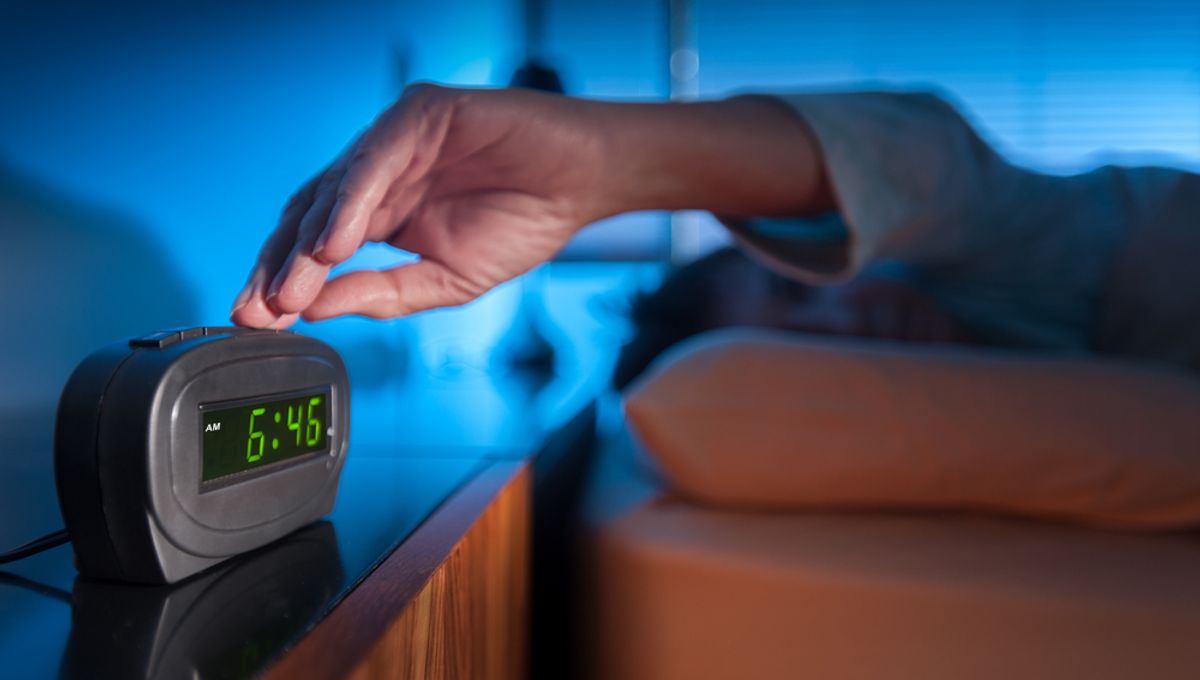
Lack of sleep can be seriously injurious to one’s health, but it’s not just hours a night that matter; quality sleep is important too. Sleep experts have long warned that snoozing after an alarm doesn’t give you what you need, but a new study shows we’re not taking their advice.
Ideally, none of us would need an alarm clock, at least not often. Having to be startled awake is an indication your body doesn’t think it has got the sleep it needs, and it’s probably right. There’s plenty of evidence that lack of sleep is harming our physical and mental health. However, in the world we live in, being out of bed at a specific time is often a necessity, so the challenge is to get the best quality sleep we can, given the time available.
That is not achieved by waking ourselves up, hitting the snooze button to grab an extra few minutes, and then getting woken again, most sleep scientists have concluded. Yet a study of what people do, rather than what they should, shows it’s still a popular practice.
Dr Rebecca Robbins of Brigham and Women’s Hospital and colleagues used data from the app Sleep Cycle to study the behavior of 21,000 people over a collective 3 million nights. On 55.6 percent of those occasions the snooze button was used, and 45 percent of participants hit the button more than 80 percent of the time.
On average the app users snoozed for 11 minutes after the first alarm, with heavy snooze button users, who used it at least 80 percent of the time, averaging 20 minutes. Worse still, when the snooze button was used, it was often repeated, with an average of 2.4 uses per sleep session. Women used the alarm more than men.
“Many of us hit the snooze alarm in the morning with the hope of getting a ‘little more sleep,” but this widely practiced phenomenon has received little attention in sleep research,” Robbins said in a statement. Of course, it is possible that those who use an app like Sleep Cycle are not typical of the general population.
“Unfortunately, the snooze alarm disrupts some of the most important stages of sleep,” said Robbins. “The hours just before waking are rich in rapid eye movement sleep. Hitting the snooze alarm will interrupt these critical stages of sleep and typically only offer you light sleep in between snooze alarms. The best approach for optimizing your sleep and next day performance is to set your alarm for the latest possible time, then commit to getting out of bed when your first alarm goes off.”
Unlike the alarm itself, Robbins’ advice will probably fall on deaf ears.
Unsurprisingly, snooze alarms were primarily used Monday-Friday. Use also peaked in winter, although monthly variations were small.
The study was international, although most users came from developed countries, and revealed Sweden, Germany and the US are most hooked on post-alarm snoozes.
Although much of what Robbins and co-authors found was predictable, one aspect was more unexpected. People who slept five hours or less are not as likely to use the snooze button as those getting more extended sleep. The researchers think this may be because people sleeping for such short periods have urgent responsibilities that don’t allow them to grab the extra minutes.
In contrast, sleep sessions lasting more than nine hours were particularly likely to end with snooze alarm use, possibly indicating catch-up of sleep deficits or illness.
The study is open access in Scientific Reports.
Source Link: Snooze Alarms Are Bad For Us, So Why Can’t We Quit Them?